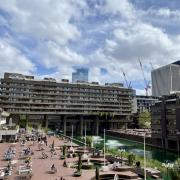
History doesn’t repeat itself. But it does run in cycles. These cycles can arguably be seen in the course of our short existence on this planet: civilizations, empires, ideologies, movements rise and fall.
Historians have helpfully (or indeed perhaps unhelpfully, depending on how you see it) divided human history into three main overall periods: Ancient History (3600BCE-500CE), spanning from about the end of the Stone Age to around the time of the fall of the Western Roman Empire (with Rome itself falling in 476CE); the Middle Ages (500-1500CE), featuring the Renaissance, the Black Death, the Rise of Islam, the beginning of the Age of Discovery etc.; and finally the Modern Age (1500-present), characterized by advances in science, politics, warfare, technology, and globalization.
But what separates these periods?
Determining the precise beginning and ending to any period is usually arbitrary. The periodisation of history is also often imperfect and biased, usually viewing the world from a Western, Eurocentric perspective (e.g. the so-called ‘Dark Ages’ were anything but ‘dark’ in places like China and the Middle East). Nonetheless, periodisation helps us to organise and systemise knowledge; categorising the past into discrete, quantified, named blocks of time facilitates the study and analysis of history. This results in descriptive abstractions that provide useful terms for periods of time with relatively consistent characteristics. Common examples of criteria by which periods can be separated from each other include shifts in politics, culture, warfare, society and intellect. But there are three other factors, that often work in tandem and in some cases transcend the inevitable geographical bias of periodisation, that can be helpful for identifying when an old period ends and a new one begins: mass migration, climate change and pandemics.
Sound familiar?
Well, that is entirely because these are all things we are dealing with today. Now, where have these three factors had a role in marking the transition between one period of history to another?
Mass Migration
Mass migration refers to the migration of large groups of people from one geographical area to another. Sometimes, specific mass migrations have been especially influential to the course of history, for example, the Indo-European migrations (4000-1000BCE), the Migration Period (375-568CE), which took place during and after the fall of the Western Roman Empire and the migration of Puritans to New England (1620-1640CE). In recent years, the world has watched an unprecedented number of refugees flood into a Europe unprepared for the new arrivals, driven from their homelands largely due to conflict and social unrest. At least 70.8 million people have been forced to flee their homes, according to the UN refugee agency, and that number is set to rise, not only due to conflict and unrest, but also with the very real threat of climate change.
Climate Change
The disastrous impact climate change could have on the course of human history is two-fold: the devastating effect it will have on our environment and the influx of climate refugees created as a result. An example from the Middle Ages of the destructive effects of climate change is the Locust Invasion of 873-874CE, with the hot summer of 872CE creating the perfect conditions for an excess of locusts, leading to massive famine in parts of Europe. This is unnervingly similar to the locust infestation in Africa, the Arabian Peninsula and South Asia this year. In addition, social conflict and unrest are due in part to climate stress e.g. induced food shortages. Indeed, many of the places that will be badly hit by climate change are already places in political and social turmoil. With the threat of vast swathes of land and entire islands becoming uninhabitable and with the risk of our planet’s biodiversity being decimated, humanity will inevitably have to adapt on an unprecedented scale to allow the continuation of their very existence on this planet, almost undoubtedly marking the start of a new period in world history. Unless, of course, we take drastic action now and, if climate change does indeed help to bring about a new period in history, let it be one of greater climate awareness and action, rather than one that is dominated by natural and human disasters.
Pandemics
Pandemics have afflicted civilisations throughout human history, with the earliest known outbreak occurring in 430BC during the Peloponnesian War. Many of these pandemics have had significant impacts on human society, from killing large percentages of the global population to causing humans to contemplate larger questions about human existence. An example of a pandemic playing a critical role in the heralding of a new era is the Plague of Justinian (541-750AD). This outbreak of the bubonic plague is thought to have killed between 30-50 million people, which could perhaps have been equal to half of the world’s population at the time. Consequently, trade largely ceased, and the Emperor Justinian’s Byzantine Empire was mortally weakened: the Roman Empire was never united again and the so-called ‘Dark Ages’ began. The inability of the Byzantine Empire to recover from the human and economic impact of the pandemic is perhaps eerily reminiscent of the current fears and doubts about how even the most powerful countries today will recover from the impact of Coronavirus.
But does the fact that we are undeniably experiencing these three things mean that we are entering a new period in world history? The answer is no: this all speculation and the periodisation of history itself is arbitrary. Even if we were entering a new period in history, nobody would actually know. There isn’t exactly a fanfare and fireworks show announcing that we are now entering the ‘x’ age/era/period. Perhaps a better question to ask would be something more specific, e.g. whether we are entering a new period in globalisation or race relations or gender equality...
Only time will tell.



























